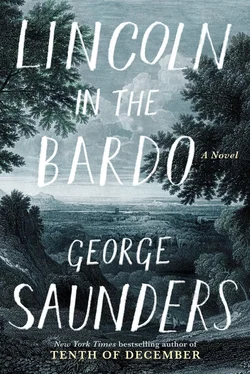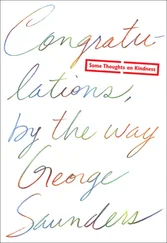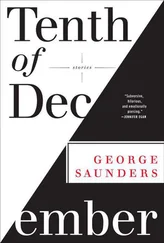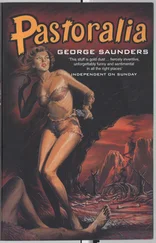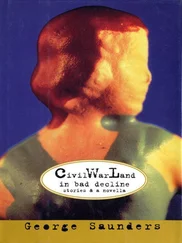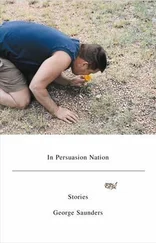“I believe you are right,” said the President. “You argue your point well. I think that we shall have to decide upon the receptions.”
The question was decided, and arrangements were made for the first reception.
In “Behind the Scenes or Thirty Years a Slave and Four Years in the White House,” by Elizabeth Keckley.
Abolitionists criticized the merry-making at the White House and many declined to attend. Ben Wade’s regrets were said to have been harshly worded: “Are the President and Mrs. Lincoln aware that there is a civil war? If they are not, Mr. and Mrs. Wade are, and for that reason decline to participate in feasting and dancing.”
In “Reveille in Washington, 1860–1865,” by Margaret Leech.
The children, Tad and Willie, were constantly receiving presents. Willie was so delighted with a little pony, that he insisted on riding it every day. The weather was changeable, and exposure resulted in a severe cold, which deepened into fever.
Keckley, op. cit.
Willie was burning with fever on the night of the fifth, as his mother dressed for the party. He drew every breath with difficulty. She could see that his lungs were congested and she was frightened.
In “Twenty Days,” by Dorothy Meserve Kunhardt and Philip B. Kunhardt Jr.
III.
[The Lincolns’] party had been savagely attacked, but all the important people had come to it.
Leech, op. cit.
A clear sightline could not be obtained for the crush; one moved dazed through a veritable bazaar of scents, colognes, perfumes, fans, hairpieces, hats, grimacing faces, mouths held open in sudden shrieks, whether joyful or terrified it was difficult to say.
In “All This Did I See: Memories of a Terrible Time,” by Mrs. Margaret Garrett.
Exotic flowers from the presidential greenhouse were in vases every few yards.
Kunhardt and Kunhardt, op. cit.
The diplomatic corps made a brilliant group — Lord Lyons, M. Mercier, M. Stoeckl, M. von Limburg, Senor Tassara, Count Piper, Chevalier Bertinatti, and the rest.
Leech, op. cit.
Multitiered chandeliers illuminated the East Room, above carpets of sea-foam green.
In “Rise to Greatness,” by David Von Drehle.
A patter of languages sounded in the Blue Room, where General McDowell, conversing in perfect French, was made much of by the Europeans.
Leech, op. cit.
Every nation, race, rank, age, height, breadth, voice-pitch, hairstyle, posture, and fragrance seemed represented: a rainbow come to life, calling out in manifold accents.
Garrett, op. cit.
There were Cabinet members, senators, representatives, distinguished citizens and beautiful women from nearly every State. Few army officers were present below the rank of division commander. The French princes had come, and Prince Felix Salm-Salm, a Prussian nobleman and cavalry officer who was serving on General Blenker’s staff…
Leech, op. cit.
…the dashing German, Salum-Salum; the Whitney brothers (twins and indistinguishable except that one wore a captain’s ribbons and the other those of a lieutenant); Ambassador Thorn-Tooley; Mr. & Mrs. Fessenden; the novelist E.D.E.N. Southworth; George Francis Train and his beautiful wife (“half his age, twice his height,” ran a witticism popular at the time).
Garrett, op. cit.
Nearly lost among a huge flower arrangement stood a clutch of bent old men in urgent discussion, heads centrally inclined. These were Abernathy, Seville, and Kord, all of whom would be dead within the year. The Casten sisters, terrifically tall and pale, stood at a slant nearby, like alabaster anthers seeking light, attempting to overhear the conversation.
In “The Union Citadel: Memories and Impressions,” by Jo Brunt.
Before them all, at eleven o’clock, Mrs. Lincoln led the promenade around the East Room on the President’s arm.
Leech, op. cit.
As we surged forward, a man unknown to me demonstrated a new dance, the “Merry-Jim.” At the urging of those gathered around, he demonstrated it again, to applause.
Garrett, op. cit.
There was great hilarity when it was discovered that a servant had locked the door of the state dining-room, and misplaced the key. “I am in favor of a forward movement!” cried one. “An advance to the front is only retarded by the imbecility of commanders,” said another, parroting a recent speech in Congress.
Leech, op. cit.
This, it occurred to me, this was the undisciplined human community that, fired by its dull collective wit, now drove the armed nation towards it knew-not-what sort of epic martial cataclysm: a massive flailing organism with all the rectitude and foresight of an untrained puppy.
In the private letters of Albert Sloane, by permission of the Sloane family.
The war was less than a year old. We did not yet know what it was.
In “A Thrilling Youth: A Civil War Adolescence,” by E. G. Frame.
When at last the key was found, and the merry guests poured in, Mrs. Lincoln had reason for pride in the magnificence of the repast.
Leech, op. cit.
The room was forty feet long by thirty feet wide, and so bright with color it seemed to be full before anyone entered.
In “The Lincolns: Portrait of a Marriage,” by Daniel Mark Epstein.
Costly wines and liquors flowed freely, and the immense Japanese punch bowl was filled with ten gallons of champagne punch.
Leech, op. cit.
Mrs. Lincoln had engaged the esteemed caterer C. Heerdt of New York. The cost was rumored to be over ten thousand dollars. Nor had any detail been overlooked; the chandeliers were garlanded with flowers, the serving tables decorated with rose petals scattered over cut rectangles of mirror.
Brunt, op. cit.
A piggish and excessive display, in a time of war.
Sloane, op. cit.
Elsa was speechless and only kept squeezing my hand. In such a way, one felt, the ancients must have entertained. What generosity! How kind our dear hosts!
In “Our Capital in Time of War,” by Petersen Wickett.
In the dining room was a long table with a gigantic looking-glass upon it bearing massive confections of sugar. Most recognizable were Fort Sumter, a warship, a temple of liberty, a Chinese pagoda, a Swiss cottage…
Kunhardt and Kunhardt, op. cit.
…sweetened replicas of a temple surrounded by the Goddess of Liberty, Chinese pagodas, cornucopias, fountains with sprays of spun sugar and encircled by stars…
In “Mr. Lincoln’s Washington,” by Stanley Kimmel.
Hives, swarming with lifelike bees, were filled with charlotte russe. War was gently hinted at by a helmet, with waving plumes of spun sugar. The good American frigate “Union,” with forty guns and all sails set, was supported by cherubs draped in the Stars and Stripes…
Leech, op. cit.
Fort Pickens also loomed up in sugar on a side table, surrounded by something more edible than barbette guns, in the shape of a deliciously prepared “chicken fixin’s”…
Kimmel, op. cit.
The flowing sugar gown of Lady Liberty descended like drapery upon a Chinese pagoda, inside of which, in a pond of candy floss, swam miniature fish of chocolate. Nearby, lusty angels of cake waved away bees hung aloft on the thinnest strings of glaze.
Wickett, op. cit.
At first delicate and perfect, over the course of the night this candy metropolis suffered various ravages, members of the party taking away entire quarters of the city in fists, into pockets, to share with loved ones at home. Later in the evening, the glass table being jostled by the crush, certain of the candied edifices were seen to give way.
Garrett, op. cit.
They dined on tender pheasant, fat partridge, venison steaks, and Virginia hams; they battened upon canvasback ducks and fresh turkeys, and thousands of tidewater oysters shucked an hour since and iced, slurped raw, scalloped in butter and crackermeal, or stewed in milk.
Читать дальше
